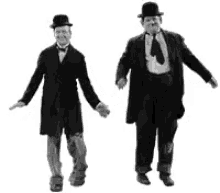Netizens praise Thai railway police after passenger's life saved in South
-
Recently Browsing 0 members
- No registered users viewing this page.
Announcements
-
Topics
-
-
Popular Contributors
-
-
Latest posts...
-
15
Finally have a retirement date, what now?
I am here on a work visa so not everything is the same of course. But... Anything to do with the LA Thai consulate make every effort to complete while still in the US. I had to get a diploma certified and I was in Thailand. The Thai consulate in LA would only accept payment via a money order in USD. Essentially impossible to get in Thailand. Nobody uses money order anymore and especially not in USD. I had to have someone in the US buy the money order and send it to me here. If you don't have a Charles Schwab bank account consider opening one while still in the US. Gives you free ATM access here (fees reimbursed monthly) and gives you access to cash without needing any redtape from Thai (or US) authorities. Best of luck on your new life here! -
175
Report Stranded Aussie Pensioner Pleads for Return Home
If Marcus was a millionaire prior to losing all his savings, he would not have been getting the Australian age pension. For a single home-owner, the asset limit is $704,000. He also would have to be in Australia to claim the age pension when he became eligible for it, or wait two years there if he was not. The thread is based on the premise he is a pensioner. I am not sure he is. -
78
Tourism Thailand's Tourism Soars with 20 Million Visitors in 2025
I am all for positive news, trust me, but the way the tourism promotion board is blowing continuously its own trumpet is second to none. Quality over quantity was the doctrine in the past and it worked very well. Today it is quantity which comes with the usual range of problems due to the lower education and interest level of the visiting avalanche of (mostly) Asian tourists. The average spending must have nosedived. Quite obviously the only increase is the sheer number of arrivals. As a non-Thai citizen I dilute the arrival figure by weekly crossing into neighboring Laos and the weekend shoppers from Laos and Malaysia are also in those figures 😉 -
12
Thai - Cambodia Conflict Cambodia’s ‘White House Journalist’ Revealed as Lobbyist
Welcome the age of misinformation, as if we were not yet introduced. -
52
Cars - Buying New Or Used in Thailand
[I think each persons vehicle needs, financial situation, ability to navigate the thai system, supports & knowledge would be different] Since 2015 I have spend 6 months each year in Thailand often doing 1 or 2 longer trips to Udon Thani but mostly driving in Bangkok and Hua Hin. Until 2022 I rented cars as needed. Prior to 2018 was about 12,000฿ / mo. After 2018 increased and now 2025 at >20,000฿ / mo. Rental Car Pros: "initially" cost effective, no stress for annual insurance & car tax, maintenance/repairs, no need worry for storage, no need find repair shop/garage. Cons: need international license (IDP), or need Thai license, sometimes vehicle we wanted was not available and in the past difficulties to rent a pickup truck. Over time significant rental price increase. Notes to my situation: As of 2022 I have large cheap long term apartment (with secure parking) in rural BKK and rental with parking in Hua Hin. I also speak, read/write thai and have thai banking. Plan to retire in 2027 staying for the full year. Covid created some financial stress for some Thai people and for a period of time cars became significantly cheaper in Thailand (both new and especially used). So because I could park the car securely, converse with the thai dealer or garage staff. Was able validate the vehicles integity; I bought a fully loaded (used) 2018 Nissan xTrail Hybrid with 40,000km from some older thai guy who thought he was gonna be rich running tourists to Pattaya. Pity for him but good for me. Owning a car became cost effective and convenient. Staff at my baan keep an eye on my tires, the starter battery has been removed while parked. I own a battery charger so will top it up and reinstall once back. You're asking good questions, do your research. But keep in mind that: the buses, water taxi, MRT & BTS system in BKK is mostly fast, cheap and convenient. Parking in many places/cities is difficult or impossible to find. Road signs in Thailand are not always clear and goggle sometimes gets it wrong. I like being able go out jump in the car and run to the Fino club at 9 pm to play some pool with friends or get up in morning and go to Nakhon Pathom visit the temple and night market before coming home at midnight. Two thoughts come to mind "convenient" อยู่ใกล้มือ and "cost effective" คุ้มค่าคุ้มราคา. Best of luck to you. -
10
UK Elon Musk Pivots to UK Electricity as Tesla Auto Sales Slide
I'll be honest, his politics turned me off buying a Tesla.
-
-
Popular in The Pub





.thumb.jpg.b54783ad387f65d779e04f535fcfeee9.jpg)



Recommended Posts
Create an account or sign in to comment
You need to be a member in order to leave a comment
Create an account
Sign up for a new account in our community. It's easy!
Register a new accountSign in
Already have an account? Sign in here.
Sign In Now